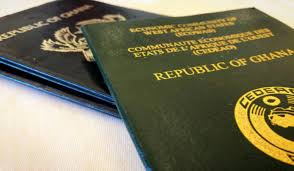A Nigerian national has been sentenced to 12 months’ imprisonment with hard labor by the Tema District Court for attempting to unlawfully acquire a Ghanaian passport.
Mohammed Ogbona, alias Mohammed Alhassan, was convicted on multiple charges including unlawful entry, fraudulent acquisition of a Ghanaian birth certificate, and obtaining a National Identification Card through false declarations.
Presiding judge Madam Benedicta Antwi imposed fines totaling GH₵7,800, with default prison terms ranging from one to six months, to be served concurrently. The 32-year-old factory worker at Cimaf Cement was arrested on June 16, 2025, at the Tema Passport Application Center after officials raised suspicions about his nationality during the application process.
This case highlights the growing dangers of illegally acquiring foreign passports, which undermines national security and facilitates criminal activities such as identity theft, financial fraud, and even terrorism. Fraudulent passport acquisition also enables illegal immigration, putting pressure on social services and potentially depriving citizens of opportunities. In Ghana, where passport misuse by foreigners—particularly Nigerians—has long been alleged, such cases strain diplomatic relations and erode public trust in national identification systems.
The prosecution, led by Inspector Jerry Foster Segbefia and supported by ASI Gillian Biney, emphasized the seriousness of Ogbona’s offenses. The court’s stringent penalties reflect Ghana’s commitment to cracking down on document fraud, which has become a recurring challenge. Authorities warn that those caught engaging in such acts will face severe consequences, including hefty fines and imprisonment. The case serves as a stark reminder of the legal and personal risks involved in attempting to falsify citizenship documents.
As Ghana tightens its border controls and document verification processes, security experts urge citizens to remain vigilant and report suspicious activities. The government has also called for stronger regional cooperation to combat cross-border document fraud.
For ordinary Ghanaians, this case underscores the importance of safeguarding national identity systems to preserve the integrity of citizenship and ensure that only legitimate holders benefit from the rights and privileges it confers.



